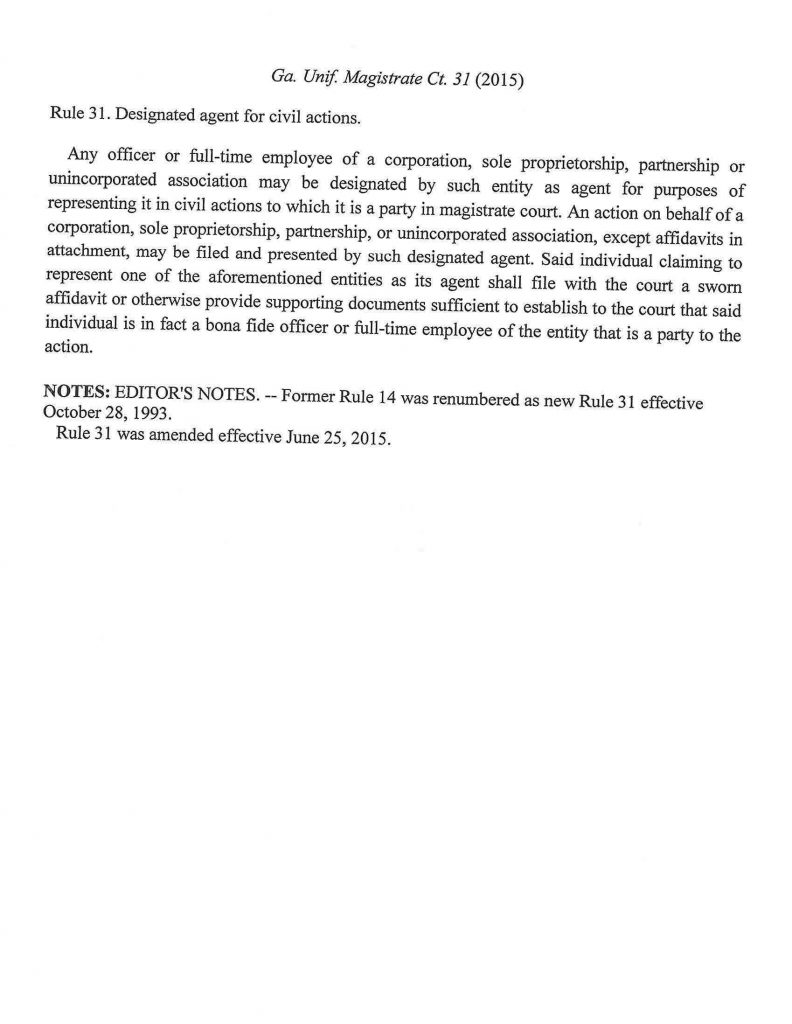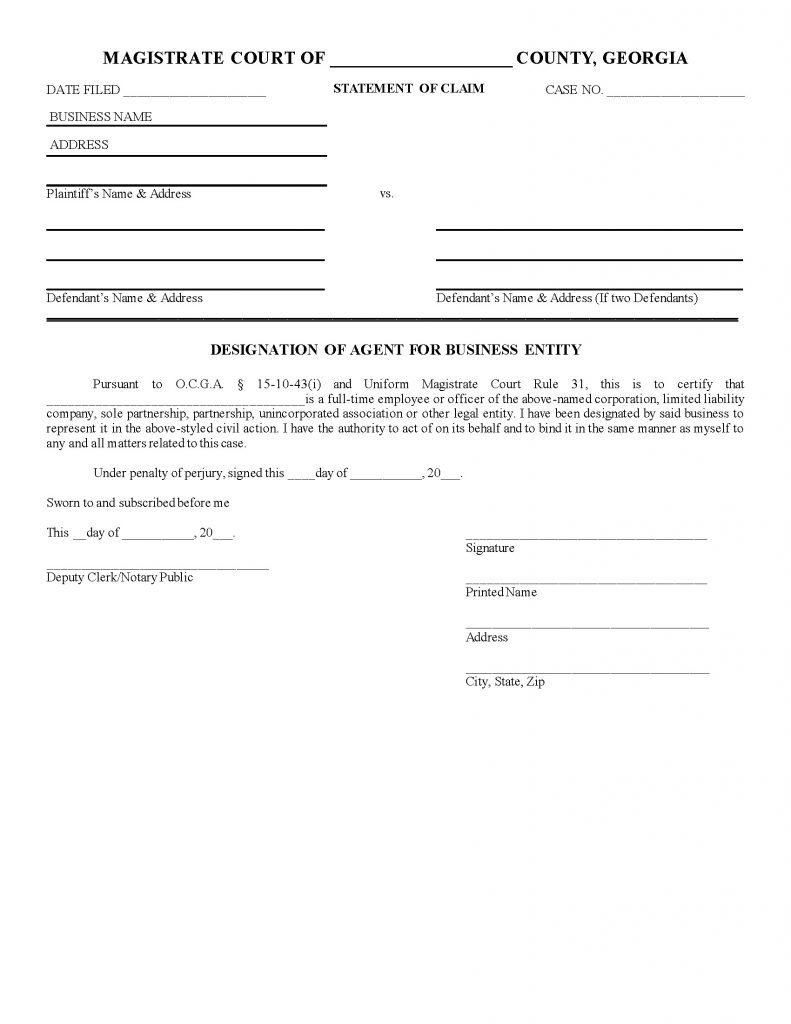Question: Can a Business be a Plaintiff Pro-Se in a Georgia Magistrate Court or Does it Need a Lawyer?
Answer: Yes, a Business can sue someone in small claims court without the need to hire a lawyer.
There are millions of small businesses in the US, most of which are a one-member LLCs, professional partnerships or small corporations with less than 10 employees. 
Businesses ranging from roofers, contractors to mechanics, and car dealers conduct dozens of transactions a month with consumers and some may end up in a dispute or a lawsuit.
In Georgia, a company or a business can be the plaintiff (sue someone) in a small claims (magistrate court) civil suit against an individual or another business without the burden of retaining an attorney. This is the case because the maximum anyone can sue for in small claims is $15,000.
Examples of businesses suing customers:
- Rental Car company seeking compensation for damaged or soiled vehicle
- A contractor who was unpaid or underpaid for a job
- A car dealer who repossessed a vehicle
- A business whose property was damaged in a car accident
- A dentist whose services were not covered by insurance
- A mechanic who repaired a vehicle but the owner took it away using a spare key without paying the bill
What does a business need to do in order to be a plaintiff in a civil suit?
- File a Statement of Claim with the court
- File an affidavit of Service
O.C.G.A. § 15-10-43(i) states: Nothing in this chapter shall be construed to prohibit an employee of any corporation or other legal entity from representing the corporation or legal entity before the magistrate court.
Georgia Uniform Magistrate Court Rule 31 Designated Agent for Civil Actions states: Any full-time officer or employee of a corporation, sole proprietorship, partnership or unincorporated association may be designated by such entity as agent for purposes of representing it in civil actions to which it is a party in magistrate court. An action on behalf of a corporation, sole proprietorship, partnership, or unincorporated association, except affidavits in attachment, may be filed and presented by such designated agent.
The person representing the company or corporation must be:
- The sole proprietor of the business entity; or
- Officer or partner of the business entity; or
- Full-time employee of the business entity; or
- Owner of the Property (Landlord)
Note: We are not attorneys and cannot give legal advice.





